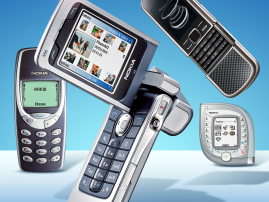5 computers that changed the world
We thank you for not uttering a single 'Can it play Crysis?' joke during your journey down supercomputer memory lane
A 1950s supercomputer – the Harwell Dekatron – has been raised from the dead by a dedicated team of researchers, so we decided to honour their tinkering efforts with a look at some other supercomputers which have tickled our tech fancy over the years.
Harwell Dekatron (1951)
Many of the original parts of the rebuilt Harwell Dekatron are still working today – a testament to its tank-like endurance. Using dekatrons (gas filled counting tubes, don’t you know?) which acted as RAM, mathematicians were able to crunch complex sums onto paper tape. That’s right, the Dekatron was essentially a 2.5 tonne calculator.
Deep Blue (1996)
IBM’s Deep Blue was the first coagulation of metal and silicon able to conquer the human brain. It defeated world champion Garry Kasparov at a single game of chess back in 1996 and despite losing overall thanks to Kasparov’s subsequent wins, its upgraded innards netted it the honour of being the first computer to defeat a reining world champion. Take that, nature.
Cray-1 (1976)
You know a computer means business when it’s girth is large enough to house padded seats. Aside from being able to enjoy your lunchtime sandwiches sitting around the Cray-1, it also provided the most computing grunt available at the time.
Colossus (1943)
If you’re thinking of the twisted metal ride at Thorpe Park, stop. Colossus was the world’s first programmable electronic computer, and was used by British codebreakers in WWII to gather crucial intelligence transmitted between the German high command and its troops. Not bad for a machine that had no RAM whatsoever.
Watson (2011)
IBM continued it’s quest to beat grey matter in 2011, where its Watson supercomputer successfully bested two experienced veterans of the US game show Jeopardy. With access to 200 million pages of stored content including Wikipedia (yes, all of it) it’s no real surprise that it won. It even divided its US$1m prize between two charities, lulling us into a false sense of security before the inevitable robot uprising.
Stuff Office Cat’s Diary 20/11/12
The best retro gadgets for Christmas 2012
How Red Bull made its crazy athlete-powered contraption



